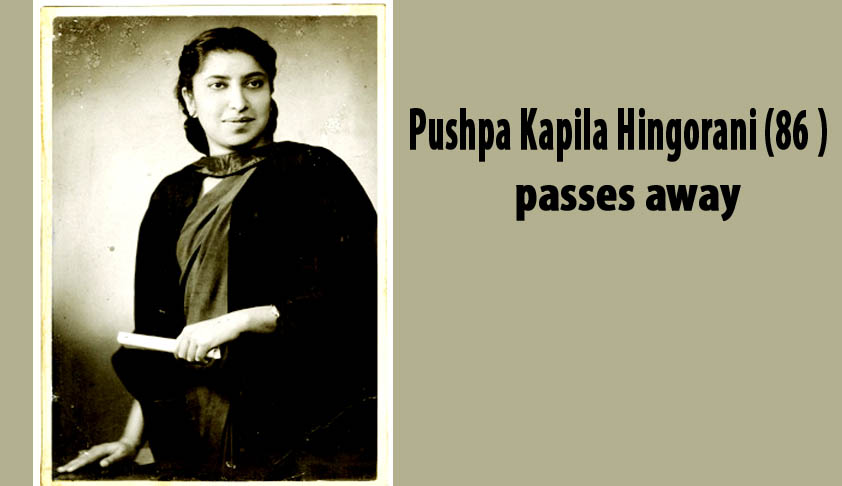Pushpa Kapila Hingorani, India’s pioneer of PILs, passes away
LIVELAW NEWS NETWORK
31 Dec 2013 3:36 PM IST

Next Story
31 Dec 2013 3:36 PM IST
Pushpa Kapila Hingorani, the lady behind many movements;one of the first legal luminaries of India;a pioneer in the use of public interest litigation on behalf of women’s movements; an indefatigable and militant advocate for women’s rights, took her last breath today morning.Pushpa Kapila attended the University College Cardiff in 1947 to study English, Economics and History before...
